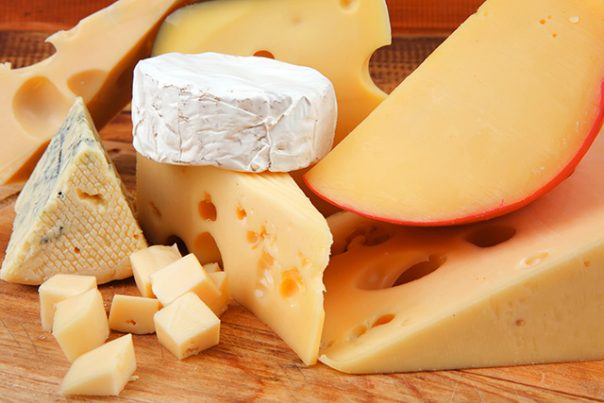
Cheese – sources, health benefits, nutrients, uses and constituents at NaturalPedia.com
Saturday, July 22, 2017 by Earl Garcia
http://www.naturalpedia.com/cheese-sources-health-benefits-nutrients-uses-and-constituents-at-naturalpedia-com.html

Cheese is a highly nutritious dairy product made from milk that comes in a wide range of flavor, texture and appearance. The superfood has been used throughout history both as a diet fixture and gourmet ingredient. Today’s market is saturated by different varieties of cheese. The most popular cheese types include blue cheese, Monterey Jack, Brie, Cheddar, Swiss, Gouda, and American cheese.
List of known nutrients
Being a dairy product, cheese contains many important nutrients found in milk. An article posted on the SELF Nutrition Data website features a complete list of these essential vitamins and minerals that include:
- Beta-Carotene
- Betaine
- Biotin
- Boron
- Calcium
- Choline
- Copper
- Fluoride
- Folate
- Iron
- Magnesium
- Manganese
- Molybdenum
- Niacin
- Omega-3 Fatty Acids
- Omega-6 Fatty Acids
- Pantothenic Acid
- Phosphorus
- Potassium
- Riboflavin
- Selenium
- Sodium
- Thiamin
- Vitamin A
- Vitamin B12
- Vitamin B6
- Vitamin C
- Vitamin D
- Vitamin E
- Vitamin K3
- Zinc
Medicinal uses for cheese
As with other dairy products, cheese is notably high in protein and essential amino acids that promote the body’s overall health. In fact, one thick slice of cheddar cheese may contain as much as 6.7 grams of protein. This is similar to the protein content found in one glass of milk. Additionally, cheese contains beneficial fats, calcium, proteins, vitamins, and minerals that promote healthy weight gain, increase muscle mass, and maintain a balanced metabolism.
Aside from this, cheese is also touted for its beneficial effects on the bones and teeth. Cheese is notably high in calcium and vitamin B, which fortify the bones and cartilage. The presence of vitamin B in cheese is found to facilitate calcium absorption in the body. Because of this, cheese is remarkably effective in preventing osteoporosis in the older population.
Cheese is also touted for its beneficial effects on cardiovascular health. The generally low sodium content in cheese prevents the onset of various cardiovascular diseases. Likewise, the ample vitamin B supply in cheese is known to keep the body’s blood pressure level in check. On the other hand, the linoleic acid and sphingolipids in cheese are known to reduce the odds of developing cancer.
In addition, cheese is known to promote a healthy nervous system. The high calcium content in cheese is found to alleviate migraines. Likewise, cheese boasts with an ample supply of tryptophan, an essential amino acid that helps ease stress. Additionally, the high tryptophan levels in cheese is touted to induce sleep.
Moreover, cheese is found to promote the female reproductive system. Cheese is notably effective in alleviating symptoms of premenstrual syndrome. Aside from this, the high calcium content in cheese is known to stimulate contractions during labor. Cheese is also important in inducing proper milk production for lactating women. Furthermore, cheese in a potent superfood that fortifies the body’s immune system. Besides this, the superfood is known to improve the skin and the hair.
Body systems supported by cheese
Cheese is particularly helpful in promoting healthy muscular and skeletal systems. Likewise, cheese is beneficial to the cardiovascular and nervous systems. In addition, cheese supports the immune and female reproductive systems, as well as the skin and hair.
Ways to use cheese
Cheese is among the most versatile ingredients, which can be eaten as is as a tasty snack or incorporated in countless recipes. Cheese is a staple for a lot of pasta dishes, salad recipes, and other nibblers and starters. Likewise, cheese is prominently used in a variety of meat dishes and baked goods. Health and wellness website Health.com has curated many interesting cheese recipes across the web.
Where to learn more
- Say cheese! How this delectable treat can actually be good for you
- 6 Health Benefits of Cottage Cheese at which You may Feel Surprised
- Are some cheeses more nutritious than others?
- Full-fat cream and cheese found to actually reduce risk of heart disease, study finds
- Unpalatable Green Bananas – Follow This Suggestion to Make Them Delicious
Summary
Cheese prevents cancer, osteoporosis, and cardiovascular diseases.
Cheese staves off stress as well as menstrual and pregnancy issues.
Cheese is beneficial to the muscular, skeletal and cardiovascular systems.
Cheese supports the immune and female reproductive systems, as well as the skin and hair.
Sources include:
Tagged Under: Tags: cheese






